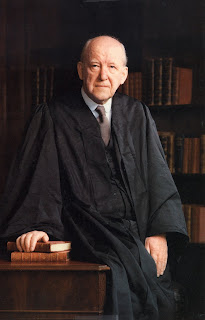
The family is the first place we learn about life and social norms. All our first questions about life are addressed to parent/guardians, as anyone will tell you who has raised children between 3 and 5 years of age, when the endless “why?” questions are predominant! What better place for children to get a clear understanding of the role, dignity and value of sexuality in human life! Before the school or the church or peers step in, the home can be the first and the foundational point to teach children about sexual identity and role-distinct responsibility. But this is easier said then done, as the home is often the last place people have such conversations!
Why is it necessary to teach this in the family? Firstly, because the young children are at a stage of trust, where they have great confidence in their parents, and will give greater attention to “what Daddy told me at home” than what peers will say! Parents can take advantage of the trust the toddlers and pre-teens have, before the more individualistic teen years set in! Secondly, since the home is where a sense of right and wrong is explained and enforced, this should include lessons on sexuality. Thirdly, because children begin exploring sexuality a lot younger than in previous generations, so the information a child needs at 11 years old, was once needed at 14 years! We need to equip them sooner, because children are more daring. Fourthly, because nowadays children get exposed to so much sexual material in the sense of more explicit movies (even those rated as family movies), music (which will make the child ask “what does that word mean?”) and public displays of affection (romantic kisses in public), etc.
How should parents go about this? It is a double difficult task because, in Zambian culture, the task always fell to grand-parents or others outside the nuclear family. As Joe Kapolyo points out in his book, it seems the parent and child generation are supposed to be formal, while, when you skip a generation, the grandparent and grandchildren are allowed to be very free, even play-mates! But the modern urban lifestyle leaves neither the time nor the resources for this model, and the gap has to be filled. Further more, the Bible has placed the task of training the child in the parents hands, with no room for deferring responsibility. The cultural barrier has to be overcome to fulfill the Biblical mandate. So it will take courage and tact!
The first approach is by parents taking advantage of questions that arise. In Richard Dobbins book, ‘Teaching your child the truth about sex’, he tells a story of a mother who took advantage of an incident where one chicken was apparently ‘killing’ the other. The mother explained to the daughter that that’s how chickens make babies! Surely every parent has some situation (when watching television or hearing a song) which will bring up a question, and the parent can give an age appropriate response, which will be truthful even if not detailed! There are also the questions about ‘where do babies come from’ and even question when the mother is expecting another child. This is a lot better than those lies where we tell a child ‘babies come from Shoprite’. In future, they will not come for real answers from the parent but look elsewhere!
The second approach is a planned talk. IF you are from certain Christian backgrounds, then the concept of the father as ‘priest’ in the home, with his little congregation to teach, is nothing new. Voddie Bauchum is a great advocate of this, as his book ‘Family driven faith’ attests. If there are family talks or devotions even once a week, there can be a day when the talk can be on Genesis chapter 2 and 3. The parents can talk about what it means to ‘leave and cleave’ to be married, both the motherly role of Eve as well as the lead and provide role of Adam the gardener and head of humanity! Simple lessons like this can increase in complexity according to the age group as well as the level of understanding and the questions that come out.
This also prepares the child to evaluate the kind of sex and life education they will receive at school, as it often falls short of the wholeness required of sexuality and responsibility training required, or at the least, it is often morally neutral instead of character building.








